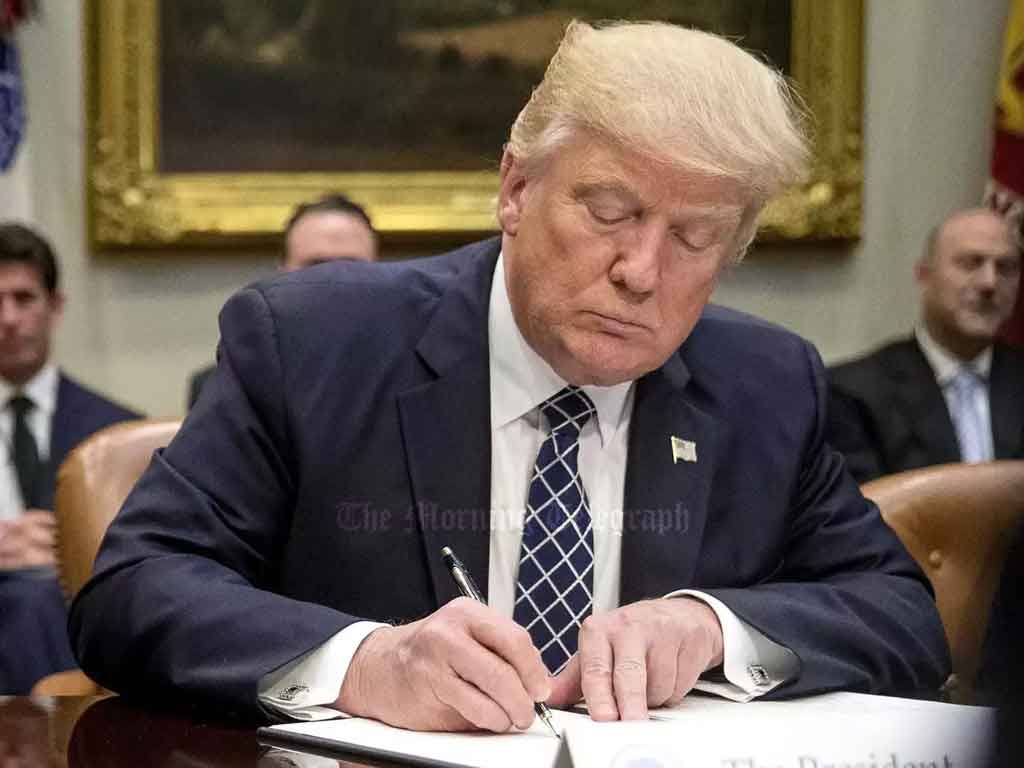
President Donald Trump, on his first day in office, signed a series of executive orders that have drawn sharp reactions across the political and social spectrum. One order redefines the federal government’s recognition of gender to only include biological male and female, while another dismantles diversity, equity, and inclusion (DEI) programs within federal agencies. These measures, framed as part of the administration’s “restoring sanity” agenda, have triggered widespread debate and legal challenges.
The gender-focused order mandates that all federal agencies adopt the term “biological sex” in place of “gender” for all policies and official documentation. This change requires agencies such as the State Department and Homeland Security to ensure that passports, visas, and other federal identification documents reflect the holder’s biological sex. The order also prohibits taxpayer funds from being used for gender-transition healthcare and stipulates that single-sex spaces, such as shelters, prisons, and bathrooms, be designated solely based on biological sex.
The executive order further directs agencies to revoke existing guidance documents that support transgender rights, such as the “White House Toolkit on Transgender Equality” and “Confronting Anti-LGBTQI+ Harassment in Schools.” Advocates for the transgender community argue that these changes will severely restrict their access to essential services and legal recognition. Critics highlight the potential for immediate impacts, such as transgender individuals being reassigned to prisons or shelters based on their birth sex, raising concerns about safety and dignity.
Trump justified the order by stating that it aims to “protect women’s rights and ensure public safety.” The order asserts that efforts to deny the biological basis of sex undermine societal fairness and public trust in government policies. However, LGBTQ advocates and civil rights organizations have announced plans to challenge the order in court, arguing that it infringes upon constitutional protections and equal rights.
The second order targets DEI programs within federal agencies, characterizing them as discriminatory and counterproductive. Within 60 days, federal departments must eliminate DEI offices and initiatives, including environmental justice programs and equity-related grants. The order calls for monthly meetings with agency deputy secretaries to assess the perceived economic and social costs of DEI policies.
The dismantling of DEI programs has sparked concerns among civil rights advocates. Organizations such as the NAACP have argued that ending DEI initiatives undermines decades of progress in promoting racial and social inclusion. Critics fear the move could pave the way for systemic discrimination by deprioritizing efforts to address inequality in public and private institutions.
The executive orders have significant implications for federal policies and societal norms. For example, transgender individuals with gender-neutral markers on passports may face difficulties re-entering the United States, potentially leading to detention by border agents. Legal experts warn that these measures could create logistical and legal challenges, requiring months or even years to implement fully across federal agencies. Despite anticipated court challenges, some aspects of the orders, such as the reclassification of single-sex spaces, could take effect immediately.
Trump defended the executive actions during his inaugural address, stating that the measures aim to uphold “scientific truth” and restore fairness in public policy. He emphasized the importance of a “colorblind and merit-based society,” positioning the orders as a rejection of what he described as “radical social engineering.”
The orders come amid a broader cultural and political debate over gender identity and racial equity. Proponents argue that the measures promote fairness and objectivity, while opponents warn of potential civil rights violations and the rollback of critical protections for marginalized communities.
The legal and political battles surrounding these executive actions are expected to intensify in the coming weeks and months. Civil rights organizations, including Lambda Legal and the NAACP, have vowed to challenge the orders, signaling a prolonged struggle over the future of gender and racial equity policies in the United States.




